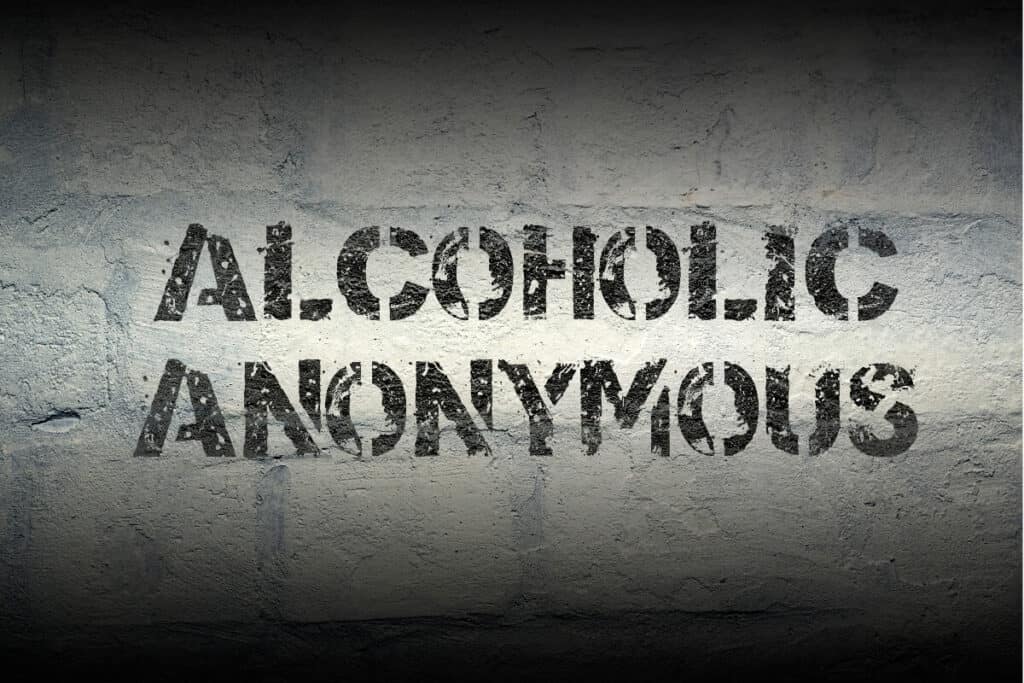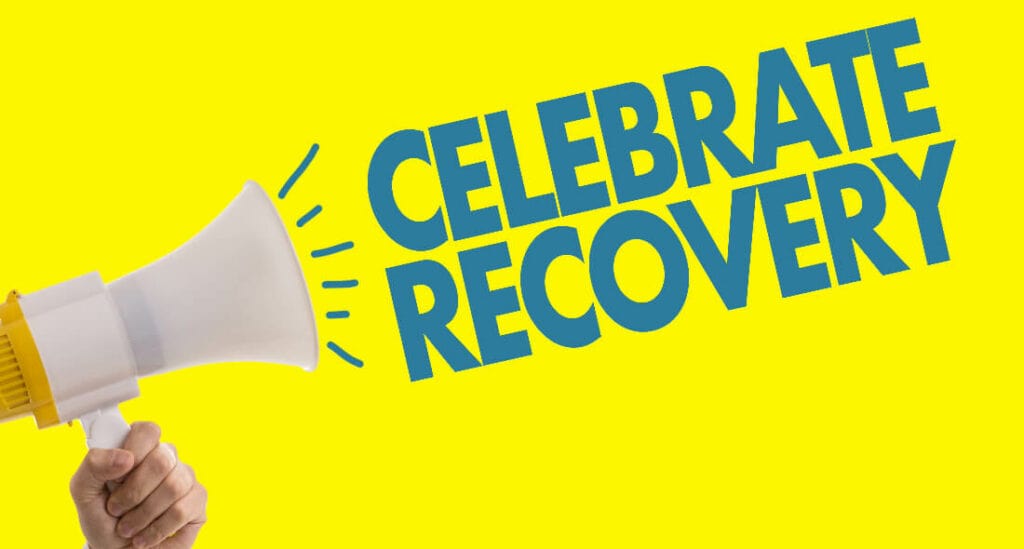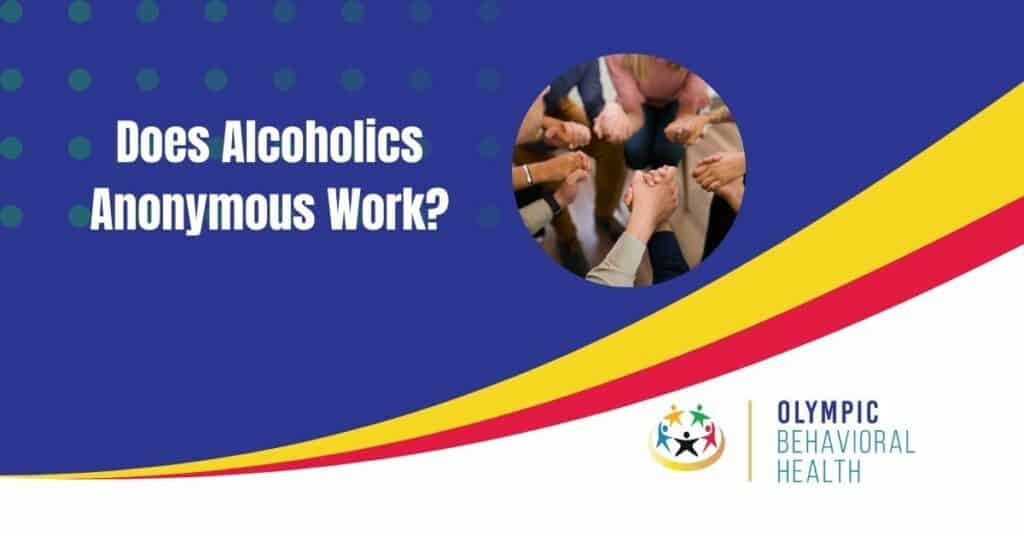What is Alcoholics Anonymous?

Alcoholics Anonymous (AA) is a globally recognized organization that supports and guides individuals struggling with alcohol addiction. It operates based on principles and a 12-step program to help members achieve and maintain sobriety. Understanding AA’s history, background, and approach is essential in evaluating its effectiveness and success rates.
AA was established in the 1930s by Bill Wilson and Dr. Bob Smith to support individuals recovering from alcoholism. It has since grown into an international fellowship with local groups conducting regular meetings.
Alcoholics Anonymous follows a 12-step program emphasizing personal responsibility, acceptance, and spiritual growth. Members work through the steps, attend meetings, and often rely on sponsorship from more experienced members for guidance.
Is AA Effective?
Evaluating the effectiveness of AA is a complex matter that involves analyzing research studies, considering individual differences, and examining personal testimonies.
Several research studies have investigated the outcomes of Alcoholics Anonymous participation, showing mixed results. Some studies suggest that AA involvement leads to abstinence and improved well-being, while others point to factors such as self-selection bias and lack of control groups as limitations.
Critics argue that methodological issues, including self-reported data and potential bias, make it challenging to determine the exact impact of AA. Some studies focus on abstinence outcomes, while others may consider reductions in drinking or improved functioning as indicators of success.
Factors such as motivation and commitment to recovery, individual differences, social support systems, and access to additional treatment options can influence the effectiveness of Alcoholics Anonymous.
Read our Google Reviews about past client experiences with Olympic Behavioral Health addiction treatment programs in Florida! Help others make informed choices on their recovery journey. For questions or to learn more about recovery management and AA, call (561) 272-0800.
Personal Testimonies and Experiences
Success Stories and Positive Experiences
Many people in recovery attribute their sobriety and improved well-being to AA. Testimonies highlight the power of fellowship, peer support, and the journey of self-discovery in achieving long-term recovery.
Challenges and Criticisms from Former Members:
Some participants have reported negative experiences, citing issues such as cult-like behavior, lack of individualized treatment, and an overemphasis on spiritual aspects as reasons they left AA or sought alternative approaches.
Alternative Approaches to Addiction Recovery
Non-12-step programs, such as SMART Recovery, emphasize self-empowerment, cognitive-behavioral techniques, and individual choice as alternatives to the spiritual aspect of AA.
Individual and group-based therapy can provide support, address underlying issues, and develop coping mechanisms to support individuals in their recovery journey.
In some cases, medications may be used alongside counseling and support groups to help individuals manage cravings and reduce the physiological effects of alcohol withdrawal.
Evaluating the effectiveness of AA requires a comprehensive examination of research, personal experiences, and consideration of alternative approaches. It is essential to recognize that what works for one person may not work for another and that individualized treatment and support are crucial in alcohol addiction recovery.
Key takeaway:
- Alcoholics Anonymous (AA) provides an effective approach to recovery. It has a long history and principles and has been successful in helping individuals overcome alcohol addiction and maintain sobriety.
- Research supports the effectiveness of AA. Numerous studies have shown positive outcomes for those involved in AA, highlighting its effectiveness as a support system for people with alcohol use disorders seeking recovery.
- Individual factors influence AA’s effectiveness. Motivation, personal circumstances, support systems, and access to additional treatment options play a role in determining the success of AA as a recovery method.
What is Alcoholics Anonymous?
Alcoholics Anonymous (AA) has been a cornerstone in addiction recovery, but what exactly is it? In this section, we’ll uncover the essence of AA, going beyond its reputation. We’ll dig into the rich history, exploring how AA came to be and the principles that guide it. Get ready to dive into the inner workings of this transformative support system, discovering what makes AA such a potent force in the recovery community.
History and Background of AA
Alcoholics Anonymous (AA) was founded in 1935 by Bill Wilson and Dr. Bob Smith in Akron, Ohio. Its goal is to assist individuals in overcoming alcohol addiction through a caring community.
AA is now a global fellowship with millions of members, drawing on personal experiences and the principles in the “Big Book.”
The philosophy of AA emphasizes a higher power, honesty, open-mindedness, and willingness. The Twelve Steps act as a blueprint for transformative recovery and personal growth.
Regular meetings offer the chance to share stories and receive unwavering support. The fellowship and sense of community are crucial to AA’s success.
While studies on AA’s effectiveness vary, personal testimonies highlight its life-altering impact.
Principles and Approach of AA
Alcoholics Anonymous (AA) is a global fellowship that supports individuals struggling with alcohol addiction. It emphasizes personal responsibility, admitting powerlessness over alcohol, spiritual and physical aspects of the disease, and recovery through steps and community.
In AA, members take moral inventory, admit wrongdoings, make amends, and follow the Twelve Steps for spiritual growth and personal development. Unity and fellowship are vital as members engage in meetings and service to build sobriety and long-term recovery foundations.
While AA has been successful, it may not be suitable for everyone. Factors like motivation, commitment, and individual differences influence effectiveness. Non-12-step programs, psychotherapy, or medication-assisted treatment may be alternatives.
AA originated in 1935 in Akron, Ohio, by Bill Wilson and Dr. Bob Smith, who overcame alcohol addiction themselves. Their experiences and belief in spiritual growth and mutual support led to AA’s principles. Today, AA provides hope and guidance worldwide through personal responsibility, spirituality, and connection with others who face similar challenges.
Experience the life-changing results of our holistic intensive outpatient addiction treatment in Florida. Contact Olympic Behavioral Health today at (561) 272-0800 and take the first step towards lasting recovery.
Success Rates and Effectiveness of Alcoholics Anonymous
Discover the truth about the success rates and effectiveness of Alcoholics Anonymous. Research studies examine AA’s impact and explore any criticisms and limitations that arise.
Research Studies on AA’s Effectiveness
Studies show that Alcoholics Anonymous (AA) is effective in helping individuals recover from alcohol addiction. These studies highlight AA’s impact and success rates as a treatment approach.

- Multiple research studies consistently demonstrate positive outcomes with AA. Many find that participation in AA leads to higher abstinence rates and improved long-term recovery for those battling alcohol addiction.
- For instance, a study published in the Journal of Substance Abuse Treatment examined the effectiveness of AA in outpatient programs. It discovered that active engagement in AA resulted in higher rates of continuous abstinence than non-participation.
- Another study published in the journal Addiction Science & Clinical Practice demonstrated that attending AA meetings was linked to increased motivation for change, reduced cravings, and higher recovery rates.
- It is important to note that research studies have addressed criticisms and limitations of AA’s effectiveness. Some suggest that AA may be more effective for highly motivated individuals and committed to recovery. However, these findings do not undermine the overall positive impact of AA for many seeking help with alcohol addiction.
- Additionally, research studies recognize the importance of individual differences and personal circumstances in influencing AA’s effectiveness. Factors such as social support, engagement in other treatment options, and the severity of alcohol addiction can interact with AA attendance to shape outcomes.
- Studying AA’s effectiveness is like measuring the success of a dance party by counting empty beer bottles afterward.
Criticisms and Limitations of the Studies
Critiques and limitations surround studies on Alcoholics Anonymous (AA) effectiveness. These include the absence of control groups, self-selection bias, reliance on self-reporting, limited long-term follow-up, participant heterogeneity, limited randomization, and concerns over external validity. Despite these, AA remains widely available and has helped many individuals find support and long-term sobriety. It’s recommended to consider additional approaches alongside AA to address individual needs and preferences.
Factors Influencing the Effectiveness of Alcoholics Anonymous
Uncover the key factors influencing the effectiveness of Alcoholics Anonymous. From motivation and commitment to individual differences and support systems, delve into the complexities behind the program’s success. Explore how personal circumstances and additional treatment options contribute to its efficacy. Gain valuable insights into what drives Alcoholics Anonymous.
Motivation and Commitment to Recovery

Motivation is key to success in Alcoholics Anonymous (AA), where individuals genuinely desire to change, overcome addiction, and find support. All important factors are active involvement in meetings, building a strong support network, developing healthy coping mechanisms, setting achievable goals, and seeking therapy when needed. Maintaining motivation and commitment greatly enhances the chances of success in AA.
Call Olympic Behavioral Health today at (561) 272-0800 and discover our comprehensive outpatient addiction treatment in Florida. Take the first step towards a healthier future! Call to learn more about AA and our alumni programs.
Individual Differences and Personal Circumstances
Individual differences and personal circumstances greatly influence the effectiveness of Alcoholics Anonymous (AA) in overcoming alcohol addiction. Considering and understanding these factors when providing support and treatment within AA allows for tailored approaches, increasing chances of long-term sobriety.
There are several factors to take into account when considering individual differences and personal circumstances:
- High motivation and commitment to recovery are crucial for success in AA.
- Psychological factors (personality, coping mechanisms, mental health) can impact the effectiveness of AA.
- The social support system (family, friends, sponsors) plays a crucial role in AA success.
- Personal circumstances (financial problems, relationship difficulties) can affect engagement in AA.
- Access to additional treatment options (counseling, medication-assisted treatment) can enhance AA outcomes.
By considering these individual differences and personal circumstances, AA can be adapted to meet the unique needs of each individual on their journey to sobriety.
Support System and Social Connections
A strong support system and social connections greatly enhance the effectiveness of Alcoholics Anonymous (AA) for alcohol addiction recovery. Here are some important factors to consider:
- AA offers a built-in support network that understands struggles, encourages, and guidance. Regular meetings establish connections with others on a similar recovery journey.
- Accountability partners, known as sponsors, offer support, guidance, and accountability for sobriety goals.
- AA meetings provide a safe space for sharing experiences, receiving validation, and gaining emotional support.
- Members help each other with practical matters like housing, employment, and accessing necessary resources.
- Engaging in social activities with AA members builds healthy relationships and a sense of belonging.
- AA meetings are widely available, providing continued support and social connections after treatment.
While support systems and social connections play a significant role in recovery, people vary in receptiveness and reliance on these factors. Personal circumstances, motivation, and commitment to recovery also influence the effectiveness of AA.
Availability of Additional Treatment Options
The availability of additional treatment options is crucial when evaluating Alcoholics Anonymous (AA) for addiction recovery. Different individuals may require different approaches to achieve sobriety.
- Additional therapy options: Counseling and psychotherapy can complement AA by addressing emotional issues & developing coping strategies.
- Medication-assisted treatment (MAT): Combining naltrexone or acamprosate with AA helps manage withdrawal symptoms, prevent relapse, & reduce cravings.
- Non-12-step programs: Offering alternative approaches to addiction recovery, these programs focus on empowerment, self-discovery, and personal responsibility.
- Dual diagnosis treatment: Integrated treatment for addiction and co-occurring mental health disorders combines therapy, medication, & support.
- Holistic approaches: Incorporating yoga, mindfulness meditation, or art therapy into recovery enhances overall well-being & experience.
The availability of these additional treatment options may vary based on location, financial resources, and personal needs. Consider their availability and accessibility in your area as you search for effective treatment for addiction recovery.
Call Behavioral Health in Florida for questions about their Medication Assisted Treatment program at (561) 272-0800. Learn more about AA and relapse prevention programs! Take the first step towards wellness today!
Alternatives for Sobriety and Relapse Prevention
Explore alternative approaches to sobriety and addiction recovery. Learn about non-12-step programs, psychotherapy, counseling, and medication-assisted treatment. Find innovative strategies for a healthier, addiction-free life.
Non-12 Step Programs
Non-12 Step Programs offer alternative approaches to addiction recovery, going beyond the traditional 12-step model. Programs like SMART Recovery and Moderation Management provide personalized methods, emphasizing self-empowerment and goal-setting. These programs acknowledge individuality and offer various resources to support recovery goals. Effectiveness can vary, influenced by motivation, commitment, and support system factors. Additional treatment options may enhance program outcomes.
Psychotherapy and Counseling
Psychotherapy and counseling are essential components of addiction recovery, helping individuals address substance abuse’s emotional and psychological aspects. Different types of psychotherapy, such as CBT and DBT, aim to bring about positive changes in thoughts, emotions, and behaviors. These approaches offer advantages like improved coping strategies, enhanced relationships, and self-awareness. Tailored treatment, integration with other approaches, and long-term support are crucial for successful recovery. Seeking professional help ensures personalized guidance and support throughout the journey.
Medication-Assisted Treatment
Medication-Assisted Treatment (MAT) combines medication, therapy, and support services to help individuals overcome addiction. Moreover, it effectively reduces substance use, overdose risk, and other health complications. MAT is carefully prescribed and monitored by healthcare professionals, always combined with counseling and support services. Additionally, individual motivation, access to support systems, and therapy are important factors for successful MAT.
Facts About “Does Alcoholics Anonymous Work?”
- ✅ Alcoholics Anonymous (AA) is an effective treatment program for alcohol use disorder (AUD).
- ✅ AA is based on social interaction, with members providing emotional support and practical tips to refrain from drinking.
- ✅ AA results in higher rates of sustained abstinence than other treatment programs, with 22% to 37% of participants remaining abstinent.
- ✅ AA generates substantial healthcare cost savings compared to cognitive behavioral treatments.
- ✅ AA is a valuable and accessible treatment option for AUD, but it may not be suitable for everyone.
Frequently Asked Questions
What is Alcoholics Anonymous?
Alcoholics Anonymous (AA) is a 12-step peer support group incorporating religion developed in the 1930s. The program remains largely unchanged. It views addiction as a disease and promotes abstinence as the solution. Daily meetings are readily available in various locations.
Does AA consider alcoholism a disease?
Alcoholics Anonymous (AA) and the 12-step movement view alcohol and drug problems as a disease. There is some evidence to support the idea of alcoholism as an incurable, progressive disease. Genetic factors contribute to 50% of the risk. Newer research-based models emphasize the interplay between genetics, environment, and co-occurring mental health disorders in addiction development.
Does Alcoholics Anonymous (AA) work?
Research shows that Alcoholics Anonymous (AA) effectively treats alcohol use disorder (AUD). The program has higher success rates and lower cost savings than other programs. It’s important to consider individual preferences and explore alternative evidence-based treatments when AA doesn’t align with one’s values or needs.
Is Alcoholics Anonymous better than other treatment programs?
Alcoholics Anonymous (AA) has been proven more effective than alternative programs and psychotherapy in achieving abstinence from alcohol. Studies indicate that AA leads to higher sustained abstinence rates (22% to 37%) compared to other treatment programs (15% to 25%). AA is also comparable in effectiveness to other interventions like alcohol-related consequences, addiction severity, and drinking intensity.
Is Alcoholics Anonymous accessible to everyone?
Alcoholics Anonymous (AA) is a widely accessible program, with daily meetings in many locations. It is open to anyone who has a desire to stop drinking. However, it is important to acknowledge that AA’s participation requirements, including adherence to the 12 steps and religious elements, may not resonate with everyone. Alternative peer support programs may be more suitable for people not aligning with AA’s values and methods.
Where can individuals seeking help for alcohol addiction find support?
Individuals seeking help for alcohol addiction can access support through various resources. Alcoholics Anonymous (AA) can be contacted through their website. The helpline provides referrals to local treatment facilities, support groups, and community-based organizations. They have an online assessment to assist in evaluating appropriate care.
Additionally, we encourage you to call Olympic Behavioral Health for support to end alcohol use disorder. Contact admissions at (561) 272-0800 for a personal assessment to find the best treatment options and support for this disease.

Share This Post



